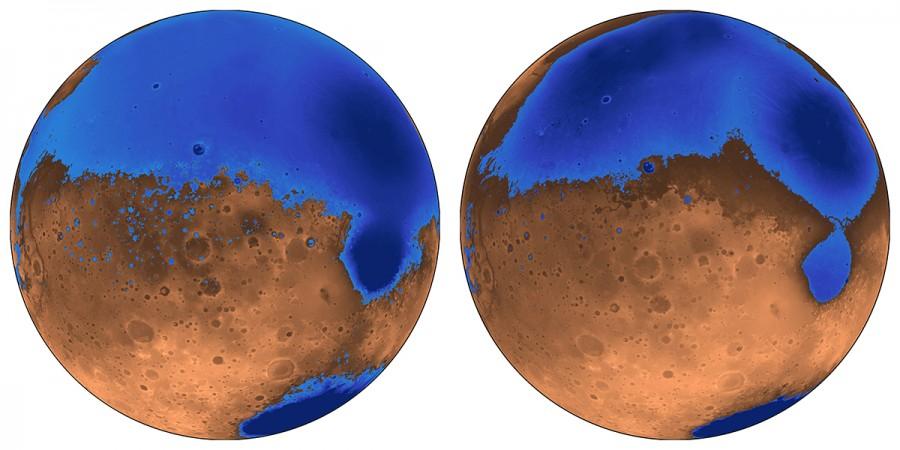
A new hypothesis to explain how oceans on Mars' surface formed and then disappeared over time in the last 4 billion years suggests that the water bodies were not as deep as once believed.
Researchers have also concluded that the oceans on Mars formed several million years earlier than the widely accepted timeline, according to a release by UC Berkeley. Volcanic activity, say the researchers, could have played an important role in the creation of oceans in the early years of Martian evolution.
"Volcanoes may be important in creating the conditions for Mars to be wet," said Michael Manga, a UC Berkeley professor of earth and planetary science and senior author of the paper.
Mars' Tharsis is the Solar System's largest volcanic system and the role it played, including warming the planet enough for it to actually hold liquid water is the basis of this paper.
Most of the water on Mars is either lost to space or permanently frozen deep underground, but this claim is often contested by factions in the scientific community.
The line of reasoning that those who do not think Mars could have had liquid oceans in the past point out two facts, notes the report- estimates of Ocean size do not match up with how much water could possibly be hidden away as permafrost now. This includes how much water from Mars could have actually escaped into space. This actually correlates with the amount of water that remains frozen at polar ice caps of the Red Planet- there is not enough to cover an ocean.
The new proposal by Manga and his team says that Mars' oceans and Tharsis formed simultaneously, or the waters came before the volcano it reached its large, planet-distorting proportions. Which happened around 3.7 billion years ago.
A smaller Tharsis in Mars' early years did not influence the landscape of the planet that much, so the researchers say that most of the Northern Hemisphere of Mars is presumed to have been a large ocean. However, the lack of crustal deformation from Tharsis means the seas would have been a lot shallower only holding about half the water than previously estimated.
"The assumption was that Tharsis formed quickly and early, rather than gradually and that the oceans came later," Manga said. "We're saying that the oceans predate and accompany the lava outpourings that made Tharsis."
















